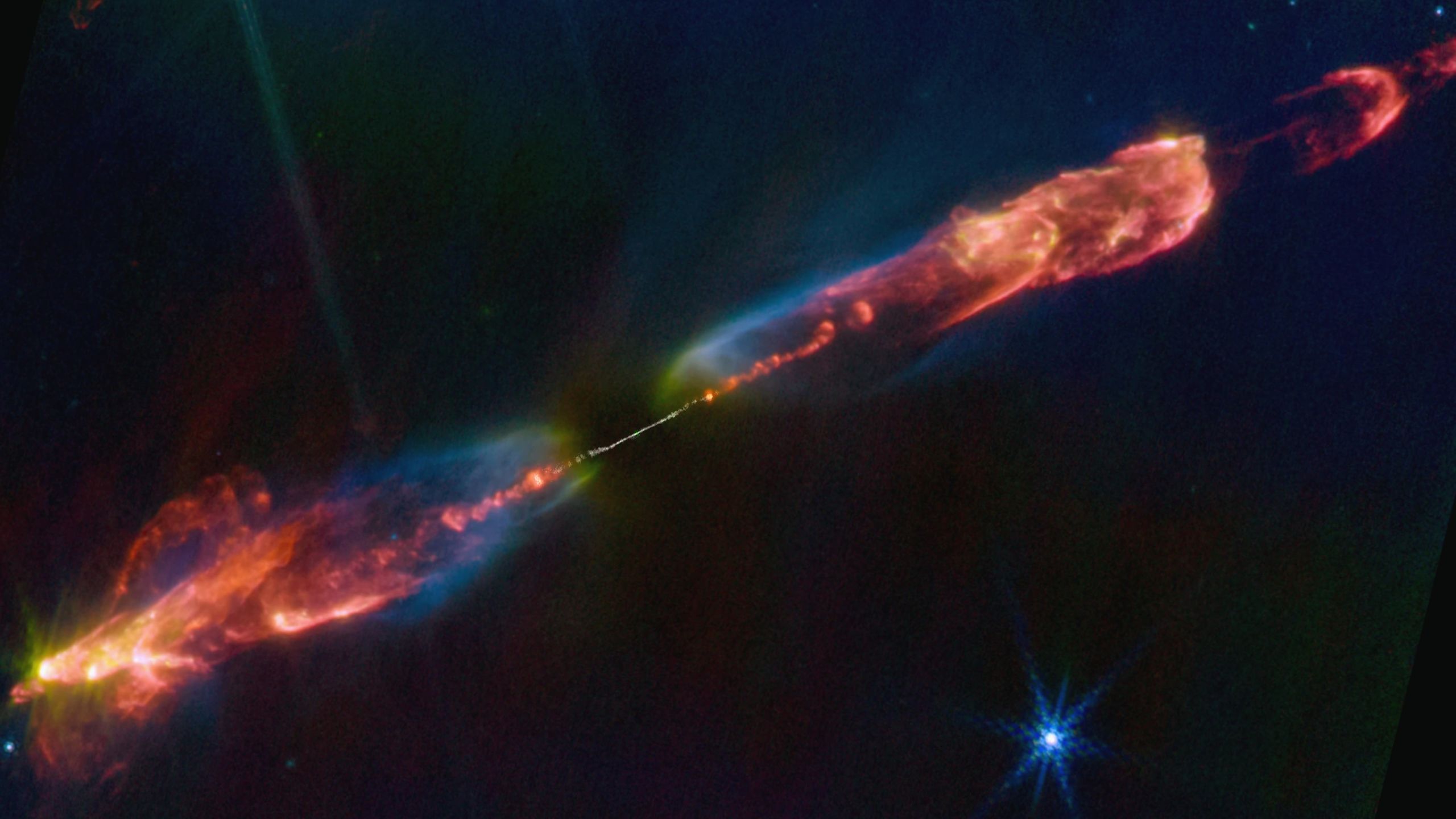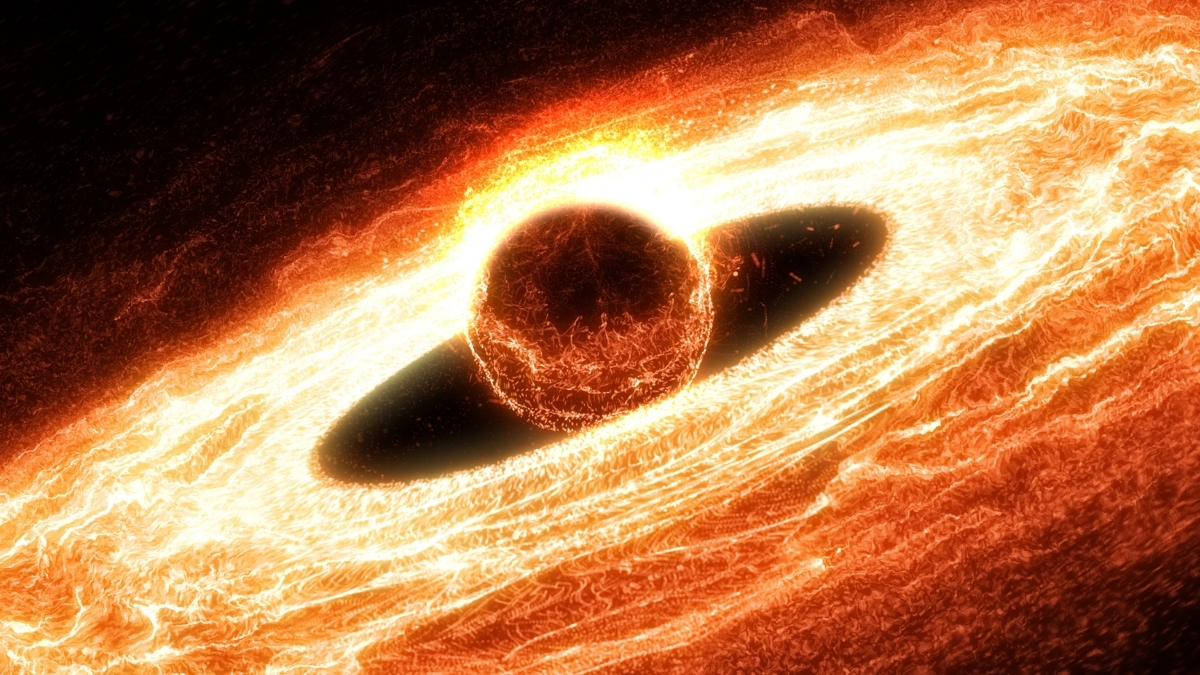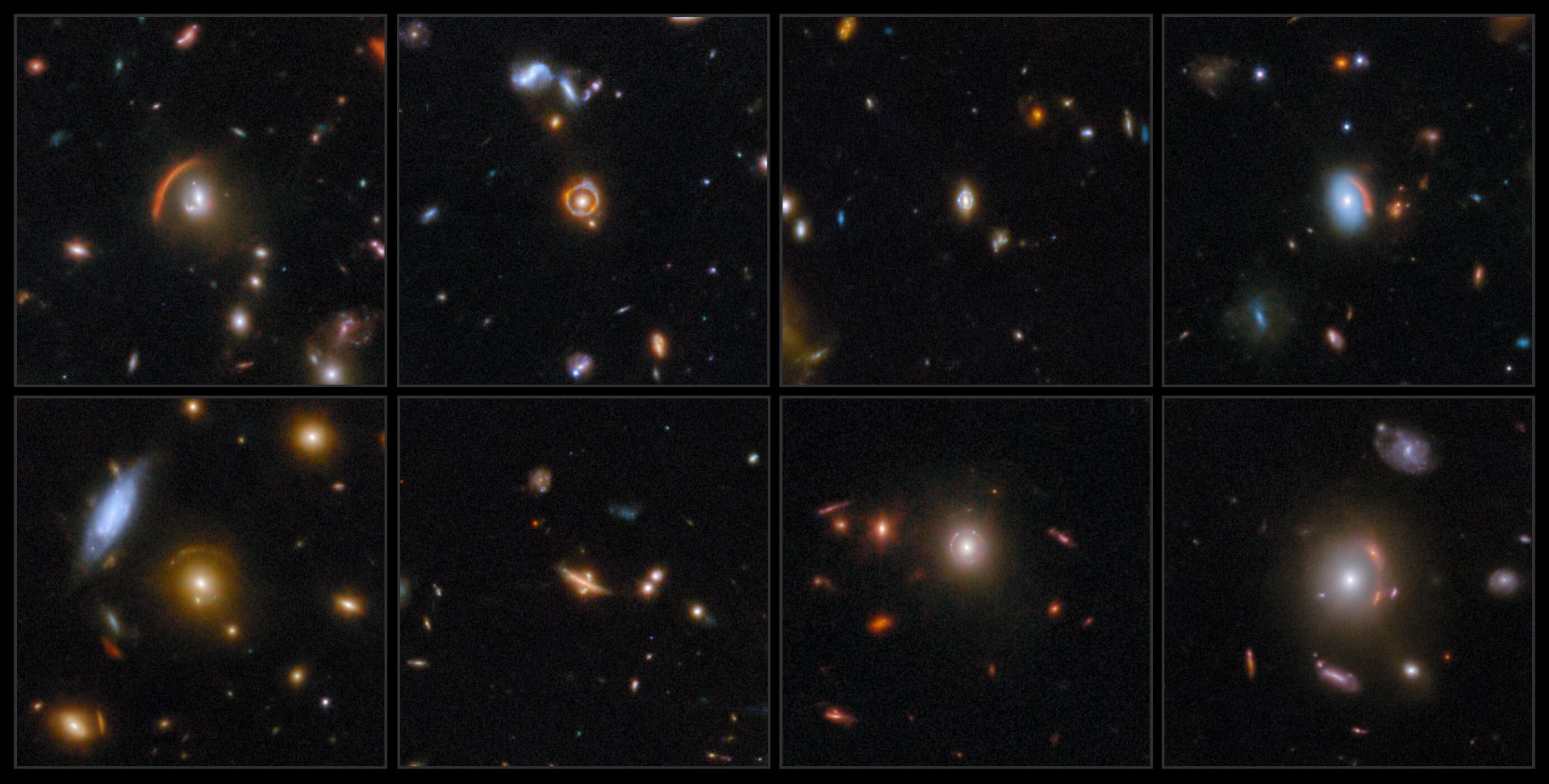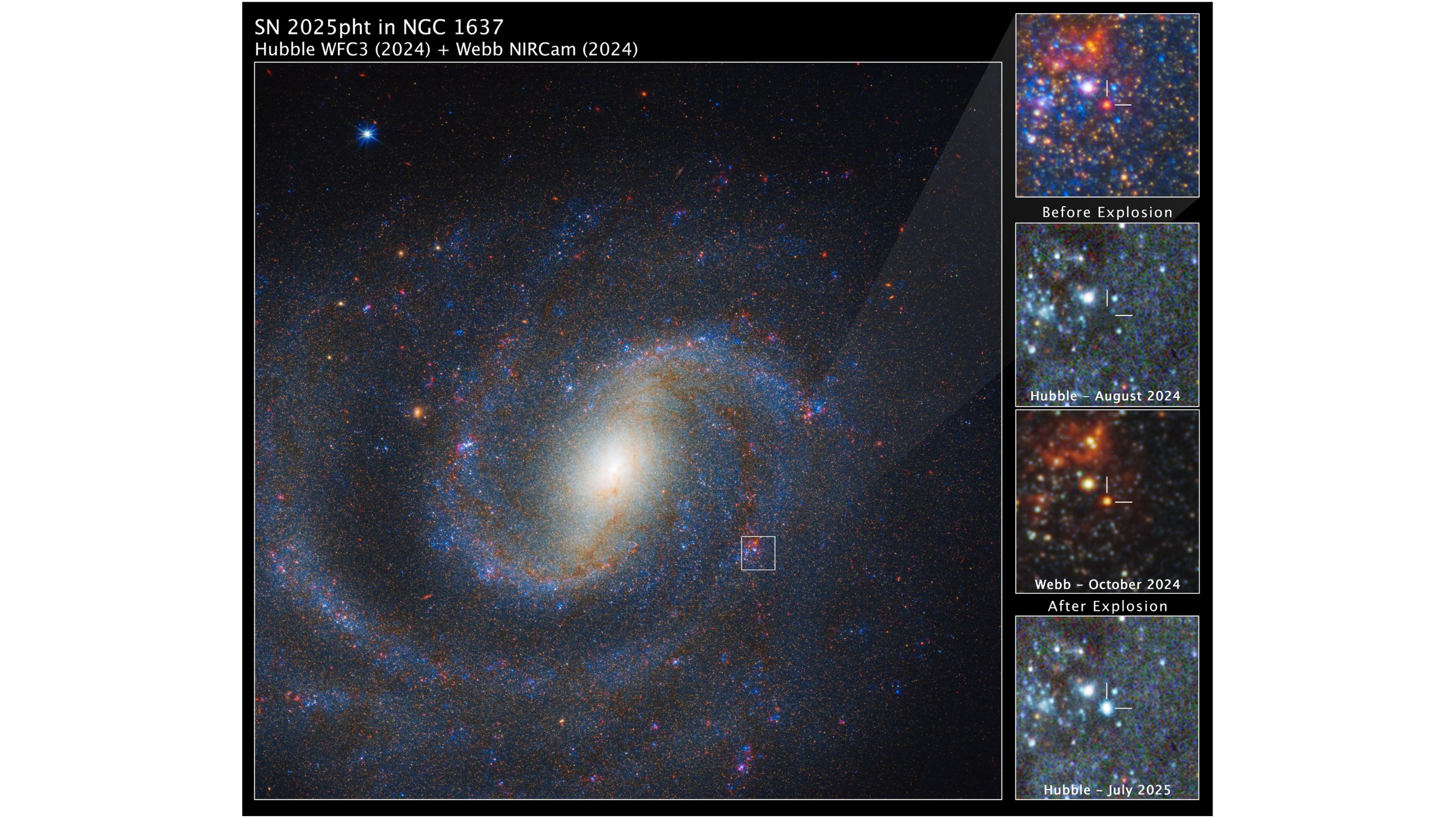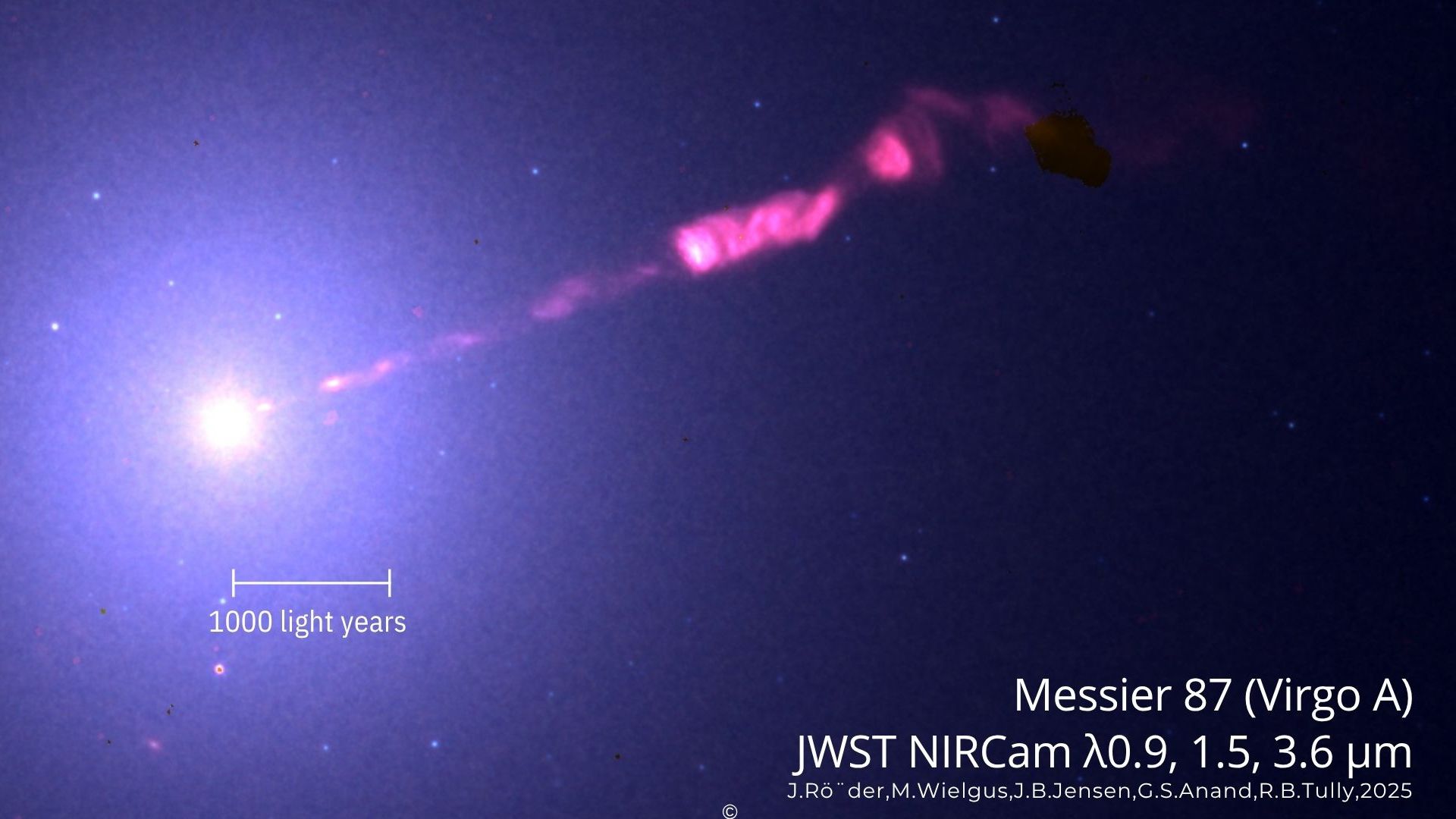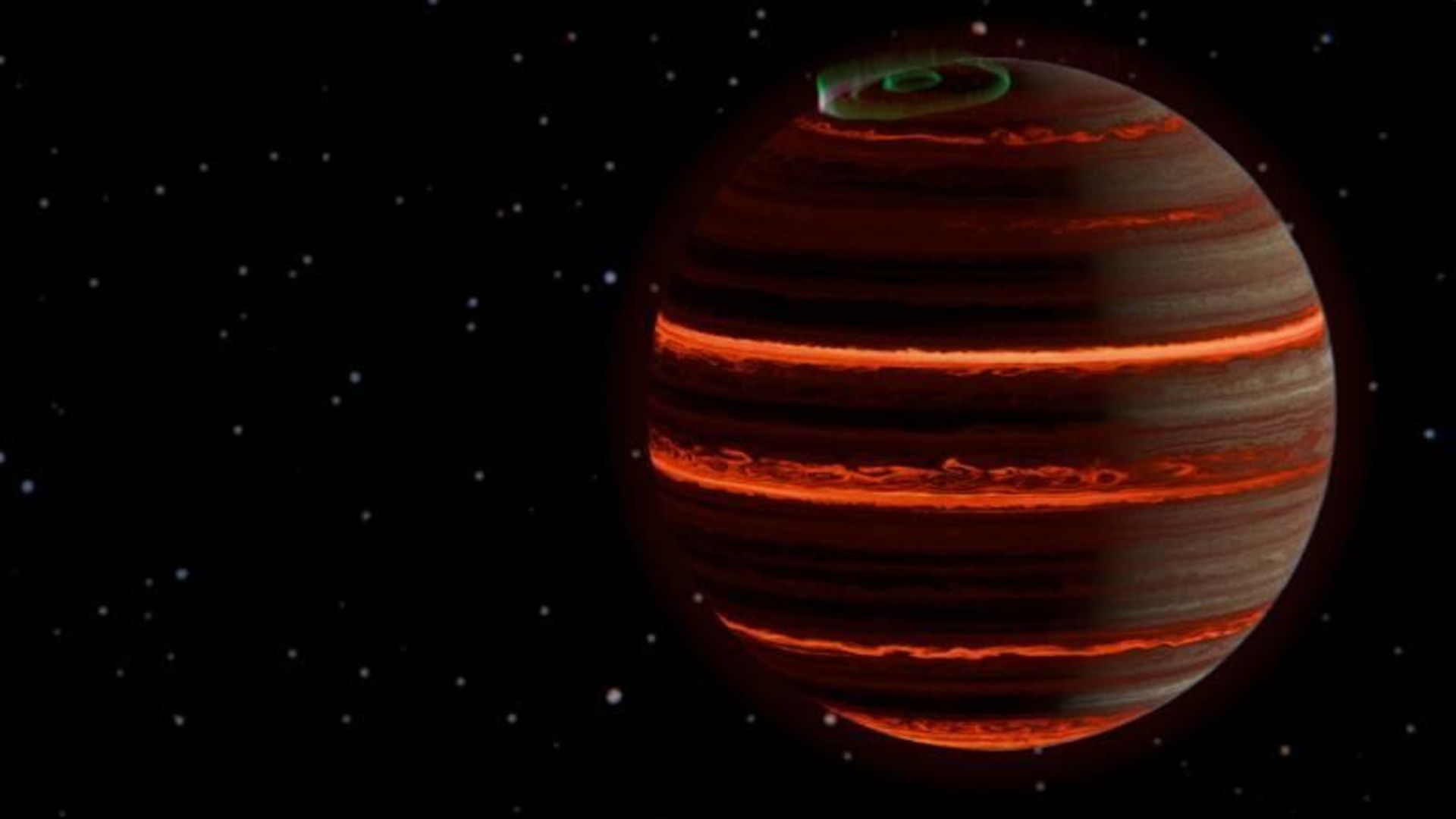This July, astronomers were left reeling by an event unlike anything seen before: a gamma-ray burst (GRB) that repeated four times in a day, instead of lasting a few minutes as is usually the case. The JWST has examined the source of this event and a paper undergoing peer-review claims the total energy released probably exceeded anything previously witnessed, including …
Read More »Tag Archives: JWST
Mysterious JWST Object Might Be The First Galaxy In The Universe
A recent detection from JWST is being widely discussed. The discoverers suggest that it might be an incredible record-breaker: it could be the oldest galaxy we have ever seen. This is yet to be confirmed, and other hypotheses are also very intriguing. The object could be an extremely dusty galaxy, or a cool object in the Milky Way, such as …
Read More »ALMA and JWST solve major star formation mystery: Space photo of the week
Quick facts What it is: HH 211, a baby star erupting with gargantuan energy jets Where it is: 1,000 light-years from Earth in the constellation Perseus. When it was shared: Sept. 17, 2025 Most events in the universe are not fully understood, including the relatively simple process of star formation. Stars form in dense clouds of cold gas and dust. …
Read More »JWST may have found the Universe’s first stars powered by dark matter
In the early universe, a few hundred million years after the Big Bang, the first stars emerged from vast, untouched clouds of hydrogen and helium. Recent observations from the James Webb Space Telescope (JWST) suggest that some of these early stars may have been unlike the familiar (nuclear fusion-powered) stars that astronomers have studied for centuries. A new study led …
Read More »JWST May Have The Best Evidence Yet of a Bizarre ‘Dark Star’ : ScienceAlert
JWST might have spotted the ‘smoking gun’ of a hypothetical object called a dark star in the distant Universe. If confirmed, this discovery could solve several mysteries of physics. A dark star may sound like an oxymoron, but it would still emit light and energy. It wouldn’t be powered by nuclear fusion like a garden-variety star, however – it would …
Read More »JWST compares gravitational lensing photo of the day for Oct. 10, 2025
Peering into deep space, NASA’s James Webb Space Telescope has helped astronomers find places to study gravitational lensing, an effect in which massive objects such as galaxies warp space-time itself, bending and distorting the light of even more distant galaxies behind them. Each distorted arc, ring or multiplied galaxy image acts as a natural cosmic magnifying glass, offering astronomers a …
Read More »JWST May Have Discovered a New Kind of Star Powered by Dark Matter – SciTechDaily
JWST May Have Discovered a New Kind of Star Powered by Dark Matter SciTechDaily Black hole stars challenge our idea of the universe Financial Times Black hole spotted near the Big Bang has astronomers scratching their heads for one key reason BBC Sky at Night Magazine Little Red Dots frequently reveal clumpy morphologies, some of which bear hallmarks of active black holes Phys.org Dark …
Read More »JWST spots dust-cloaked ‘red supergiant’ star just before it went supernova
For decades, astronomers have searched the skies for a missing population of doomed stars — the massive red supergiants that theory predicts should end their lives in powerful stellar explosions, but somehow rarely seem to. Now, thanks to the James Webb Space Telescope (JWST), the mystery may finally be clearing up, quite literally. In a new study, a team of …
Read More »JWST captures clearest-ever image of M87 galaxy’s supermassive black hole jet
For more than a century, astronomers have marveled at the brilliant jet of matter blasting from the heart of the giant elliptical galaxy M87. Now, the James Webb Space Telescope (JWST) has provided the clearest-ever infrared view of this cosmic powerhouse, revealing fresh details about the black hole-driven jet, and even catching sight of its elusive twin streaming in the …
Read More »JWST delivers 1st weather report of nearby world with no sun — stormy and covered with auroras
The latest weather forecast doesn’t come from Dublin, London or New York — it comes from deep space, where a lonely world drifts without a sun and glows with auroras more dazzling than Earth’s northern lights. The world, called SIMP-0136, is about 200 million years old and lies about 20 light-years away in the constellation Pisces. It isn’t quite a …
Read More »

